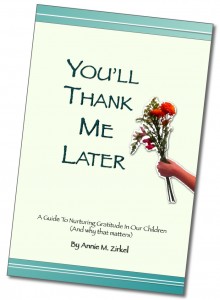 Several years ago, when my son tried to convince me that he had no choice but to hit his brother, I took the opportunity to teach my kids the word "rationalization."
Several years ago, when my son tried to convince me that he had no choice but to hit his brother, I took the opportunity to teach my kids the word "rationalization."
The way I explain it, rationalization works backwards from the answer you want by cherry-picking the logic that gets you to that answer.
Kids use it to sell a story about how life should go in a particular way - like two desserts today because they didn't have any yesterday, or to justify why life went the way it did - like how they couldn't do their homework because it didn't make sense or how they HAD to hit their brother because "he hit me first." ...continue reading



